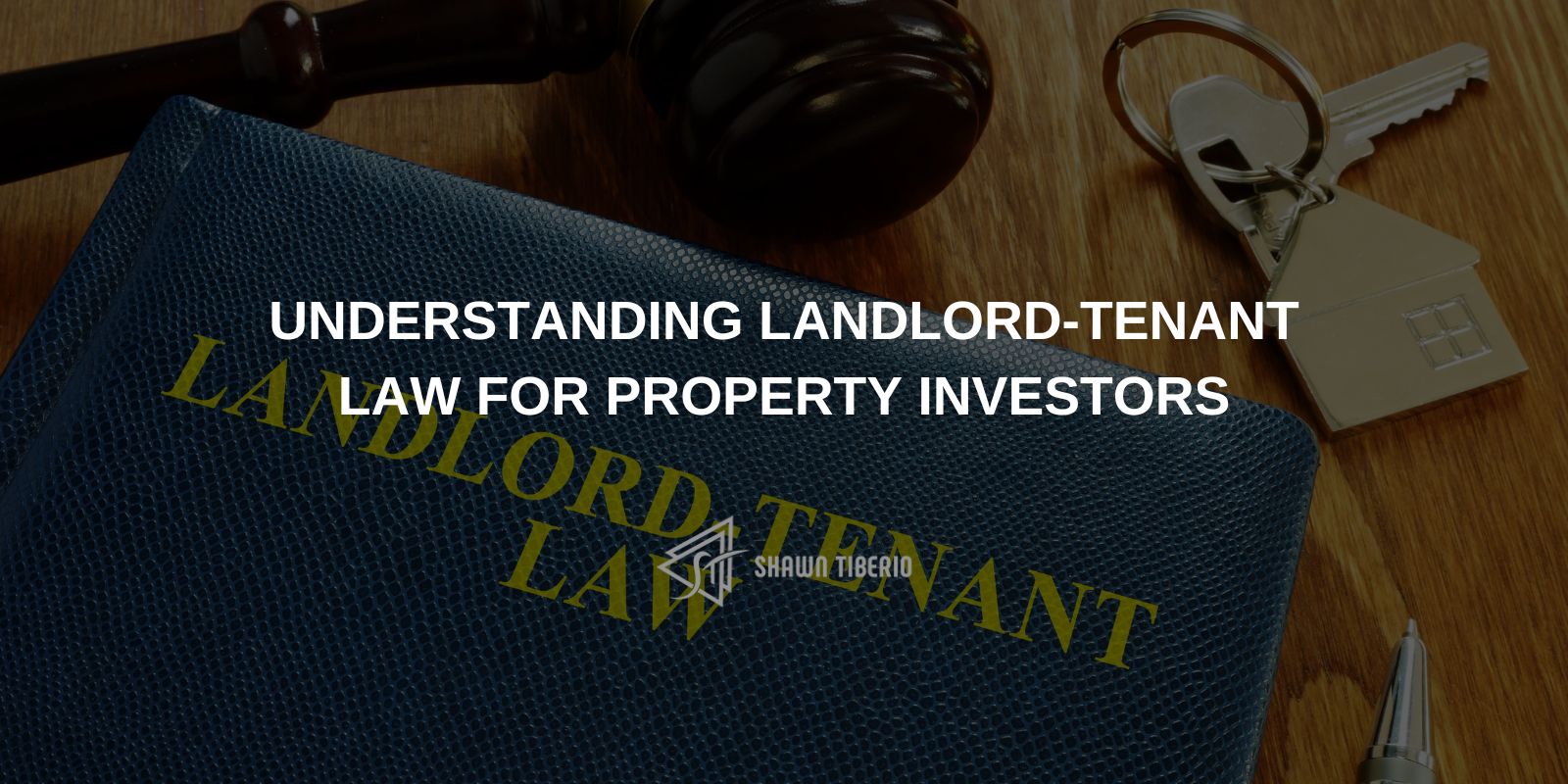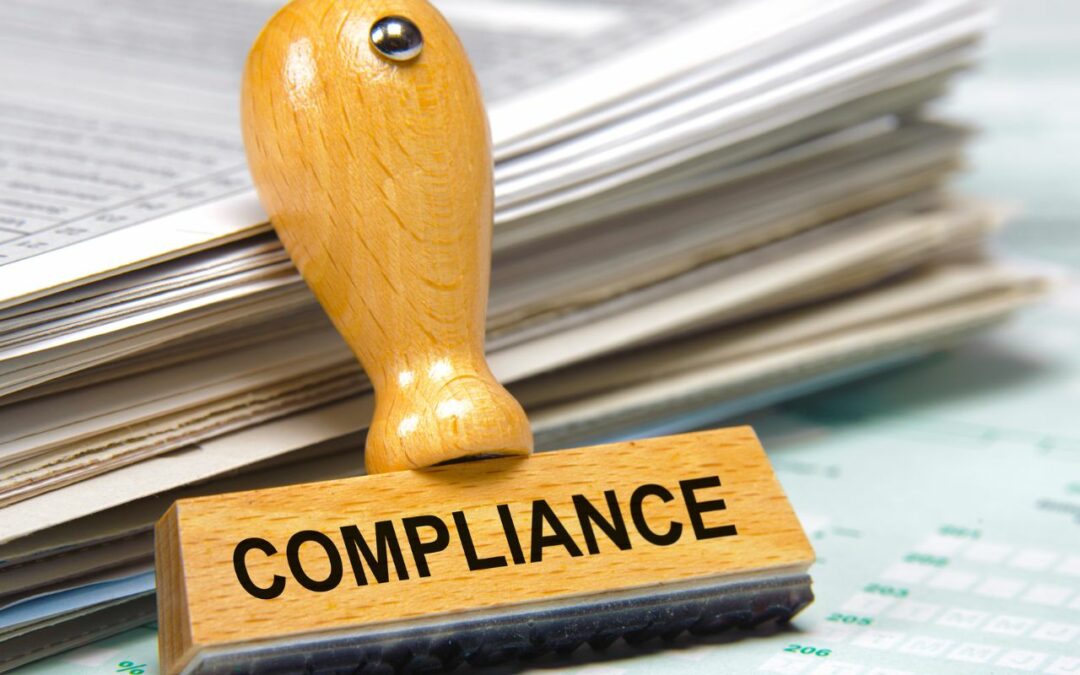Understanding landlord-tenant law is vital for property investors. You must know key responsibilities like effective communication and property maintenance. Be aware of tenant rights, lease agreements, and security deposit management. Handling evictions correctly is crucial. Legal resources can guide you. Familiarize yourself with these laws to ensure compliance, protect investments, and nurture positive relationships with tenants. Mastering these aspects is a cornerstone of successful property management.
Key Takeaways
- Compliance with local laws is essential for legal protection.
- Clear lease agreements mitigate disputes and maintain positive relationships.
- Proper security deposit management ensures transparency and fairness.
- Understanding eviction processes and tenant rights is crucial.
- Utilize legal resources for guidance and risk mitigation.
Importance of Knowing Landlord-Tenant Laws
Understanding the significance of knowing landlord-tenant laws is essential for property investors to navigate legal obligations and protect their investments effectively. Compliance with these laws guarantees that you’re conducting your property investment activities within the boundaries set by the legal framework governing landlord-tenant relationships. By understanding the intricacies of these laws, you can proactively address issues that may arise during the tenancy, ultimately safeguarding your investment and fostering a positive landlord-tenant relationship.
One important aspect of understanding landlord-tenant laws is grasping the rights and responsibilities of both parties involved. As a property investor, knowing what you’re entitled to under the law allows you to assert your rights while also respecting the rights of your tenants. This understanding forms the foundation for a harmonious landlord-tenant relationship built on mutual respect and adherence to legal requirements.
Moreover, compliance with landlord-tenant laws is crucial for mitigating potential risks and liabilities. By staying informed about the legal obligations imposed on landlords, you can take proactive measures to prevent legal disputes or financial losses. Understanding the nuances of these laws empowers you to make informed decisions regarding property management, tenant selection, lease agreements, and property maintenance, thereby minimizing the likelihood of legal complications down the line.
Key Landlord Responsibilities
Fulfilling key responsibilities as a landlord is essential for maintaining a successful and compliant rental property operation. One of the fundamental duties is effective tenant communication. Maintaining open lines of communication with tenants is vital for addressing concerns promptly, fostering positive relationships, and ensuring a harmonious living environment. Regularly updating tenants on any changes, repairs, or important information regarding the property helps in creating a sense of transparency and trust.
Property maintenance is another critical aspect of being a responsible landlord. Ensuring that the rental property is well-maintained not only preserves its value but also provides a safe and habitable living space for tenants. Regular inspections, timely repairs, and addressing maintenance requests promptly are essential for upholding your end of the rental agreement. Neglecting property maintenance can lead to dissatisfaction among tenants, potential legal issues, and even property damage.
Essential Tenant Rights
As a property investor, you must be well-versed in your tenants’ rights, including important aspects like lease termination rights and security deposit regulations. Understanding these key points will help you navigate potential disputes and guarantee you comply with legal obligations.
Lease Termination Rights
When contemplating lease termination rights in landlord-tenant law, it’s essential to understand the specific circumstances under which a tenant can legally end their lease agreement.
Rights protection plays a critical role in guaranteeing tenants have the necessary safeguards when maneuvering lease negotiations. Understanding the clauses related to early termination, such as lease break options or penalties, is crucial for both landlords and tenants.
Tenants should be aware of their rights regarding lease termination due to unforeseen circumstances, such as job relocation or health issues. It’s advisable for tenants to review the lease agreement thoroughly before signing to make sure they’re comfortable with the termination terms outlined within the contract.
Security Deposit Regulations
To ensure a smooth tenancy experience, it’s important to understand the regulations surrounding security deposits, a vital aspect of tenant rights that directly impacts both landlords and tenants.
Security deposit rules typically dictate the maximum amount that can be charged, the timeframe for returning the deposit after lease termination, and the conditions under which deductions can be made.
Deposit disputes often arise when there’s disagreement over deductions for damages beyond normal wear and tear or unpaid rent. It’s essential for landlords to provide a detailed move-in inspection report and document any changes during the tenancy to avoid conflicts during deposit return.
Understanding these regulations and following them diligently can help prevent misunderstandings and legal issues at the end of a lease.
Lease Agreements and Disclosures
Understanding the significance of transparent and detailed lease agreements and disclosures is essential for property investors looking to safeguard their interests and maintain positive landlord-tenant relationships. When it comes to the tenant screening process and lease negotiations, a well-crafted lease agreement should outline the criteria for tenant selection, including credit score requirements, income verification, and rental history. Clearly defining these parameters helps to streamline the screening process and guarantees that all potential tenants are fairly evaluated. Additionally, lease negotiations can involve setting boundaries for issues such as pet policies, subletting rules, and maintenance responsibilities.
Property maintenance and rent collection are also key components that should be addressed in lease agreements. Investors should clearly outline the maintenance responsibilities of both parties, including who’s responsible for routine upkeep, repairs, and emergency maintenance. This clarity helps prevent misunderstandings and disputes down the line. Rent collection terms, such as due dates, late fees, and acceptable payment methods, should also be explicitly stated in the lease agreement to avoid payment delays and ensure consistent cash flow.
Handling Security Deposits
When managing security deposits, you must be aware of the limits set on the deposit amount, the proper procedure for returning deposits, and the permissible deductions for damages. Understanding these key points will help you navigate the complexities of landlord-tenant law and guarantee compliance with regulations to protect both your interests and those of your tenants.
Stay informed and meticulous when handling security deposits to avoid potential disputes or legal issues down the line.
Deposit Amount Limits
Limiting the security deposit amount is an important aspect of landlord-tenant agreements that demands meticulous attention and compliance with local laws. When it comes to deposit disputes in rental properties, landlords must be aware of the legal limits on the amount they can collect.
Most states have specific regulations governing security deposit caps, typically ranging from one to two months’ rent. It’s vital for landlords to understand these limitations to avoid potential disputes with tenants.
Additionally, concerning deposit disputes and landlord obligations, it’s essential for landlords to document the condition of the property thoroughly before a tenant moves in and upon their departure. This documentation can help resolve any disagreements that may arise regarding deposit deductions.
Deposit Return Process
To guarantee a smooth handling of security deposits, landlords must meticulously document the property’s condition before and after a tenant’s occupancy. Detailed documentation requirements include thorough move-in and move-out inspections, photographs, and written descriptions of the property’s state. This documentation serves as vital evidence in case of disputes over damages or deductions.
Landlords should establish a clear refund timeline, typically within a specific number of days after the tenant moves out. Effective tenant communication is key during this process, ensuring transparency and clarity regarding the return of the security deposit. In the event of any disputes, having robust documentation and a well-communicated process can facilitate smoother dispute resolution.
Deductions for Damages
Properly documenting damages and deductions from the security deposit is essential for landlords to protect their investment and guarantee fair treatment of tenants. Understanding property inspections is vital in this process.
Conduct thorough move-in and move-out inspections with tenants to document the property’s condition accurately. Take detailed notes, photographs, and videos to support any claims of damages against the security deposit. This documentation serves as evidence in case of disputes over deductions.
Dealing With Evictions
When facing the need for an eviction as a property investor, it’s important to understand the legal process thoroughly to protect your rights and handle the situation effectively. The eviction process typically starts with serving the tenant a notice, which could be for non-payment of rent, lease violations, or other valid reasons as per the lease agreement. It’s vital to follow the specific procedures outlined in landlord-tenant laws to guarantee a legally sound eviction.
As you navigate the eviction process, it’s important to be aware of tenant eviction rights. Tenants have rights that protect them from unlawful eviction, such as the right to receive proper notice before being asked to vacate the property. Understanding these rights can help you avoid legal complications and ensure a smoother eviction process.
Before proceeding with an eviction, consider alternatives like mediation or payment plans to resolve the issue amicably. If eviction becomes necessary, maintain accurate records of all communication and documentation related to the eviction to safeguard yourself in case of legal disputes.
Legal Resources for Investors
Managing the complexities of landlord-tenant law as a property investor requires utilizing legal resources effectively to guarantee compliance and safeguard your investments. Legal assistance plays an essential role in ensuring that your investment strategies align with the ever-evolving legal landscape. By engaging with legal professionals who specialize in landlord-tenant law, you can gain valuable insights into compliance requirements and mitigate potential risks.
Legal resources come in various forms, such as online legal platforms, law firms specializing in real estate, and industry-specific legal publications. These resources can provide you with templates for lease agreements, guidance on handling tenant disputes, and updates on changing regulations. Leveraging these resources can enhance your understanding of the legal framework governing landlord-tenant relationships, ultimately helping you make informed decisions that protect your investments.
When seeking legal assistance, consider partnering with attorneys who have a deep understanding of property investment laws. These professionals can offer tailored advice that aligns with your investment goals while ensuring compliance with relevant regulations. By proactively seeking legal guidance, you demonstrate a commitment to upholding ethical business practices and fostering positive landlord-tenant relationships.
Frequently Asked Questions
What Are the Potential Consequences for Landlords Who Do Not Comply With Landlord-Tenant Laws?
If you don’t comply with landlord-tenant laws, you could face potential fines and legal action. Not following the regulations may result in hefty penalties and even lawsuits.
It’s essential to understand and abide by these laws to avoid these consequences. Make sure you’re well-versed in the legal requirements to protect yourself from such outcomes. Stay informed and proactive to prevent any issues that may arise from non-compliance.
How Can Landlords Effectively Navigate and Resolve Disputes With Tenants Without Resorting to Evictions?
To effectively navigate disputes with tenants without evictions, focus on conflict resolution through mediation. Open lines of communication with tenants for problem-solving. Address concerns promptly and listen actively. Offer solutions that benefit both parties and maintain a professional demeanor.
Prioritize understanding tenant perspectives and finding common ground. Utilize mediation techniques to facilitate constructive dialogue and reach mutually agreeable resolutions. This approach can foster positive landlord-tenant relationships and prevent unnecessary evictions.
Are There Any Specific Regulations or Laws That Property Investors Should Be Aware of When Renting Out Properties in Different States or Regions?
When renting out properties in different states or regions, you must be aware of specific regulations and laws. These laws dictate landlord responsibilities and protect tenant rights. Adherence is vital to avoid legal issues.
Research state-specific regulations on security deposits, lease agreements, and eviction procedures. Understanding these laws will help you navigate the rental market effectively and maintain positive landlord-tenant relationships.
Stay informed and proactive to guarantee smooth property management.
What Are Some Common Pitfalls That Landlords Should Avoid When Drafting Lease Agreements and Disclosures?
When creating lease agreements and disclosures, you must attentively consider the lease terms to guarantee clarity and protection for both parties. Clearly outline key details such as:
- Rent amount
- Payment due dates
- Maintenance responsibilities
- Any potential fees or penalties
Additionally, be thorough in disclosing information about the property to avoid any misunderstandings or disputes. Understanding tenant rights and the eviction process is vital to handling potential challenges smoothly.
How Can Landlords Protect Themselves From Potential Legal Liabilities When Handling Security Deposits?
When handling security deposits, it is crucial to protect yourself by clearly outlining deposit deductions in your lease agreements. Utilize legal documentation to guarantee compliance with relevant laws.
Implement a robust tenant screening process to minimize risks. Establish a structured dispute resolution mechanism for deposit-related issues.
Final Thoughts
As a property investor, understanding landlord-tenant law is vital for success. By knowing your responsibilities, tenant rights, and legal obligations, you can avoid costly mistakes and protect your investment.
Just like a skilled navigator guides a ship through turbulent waters, your knowledge of landlord-tenant laws will steer you towards smooth sailing in the world of real estate investing.
Stay informed, stay compliant, and watch your investments flourish.











